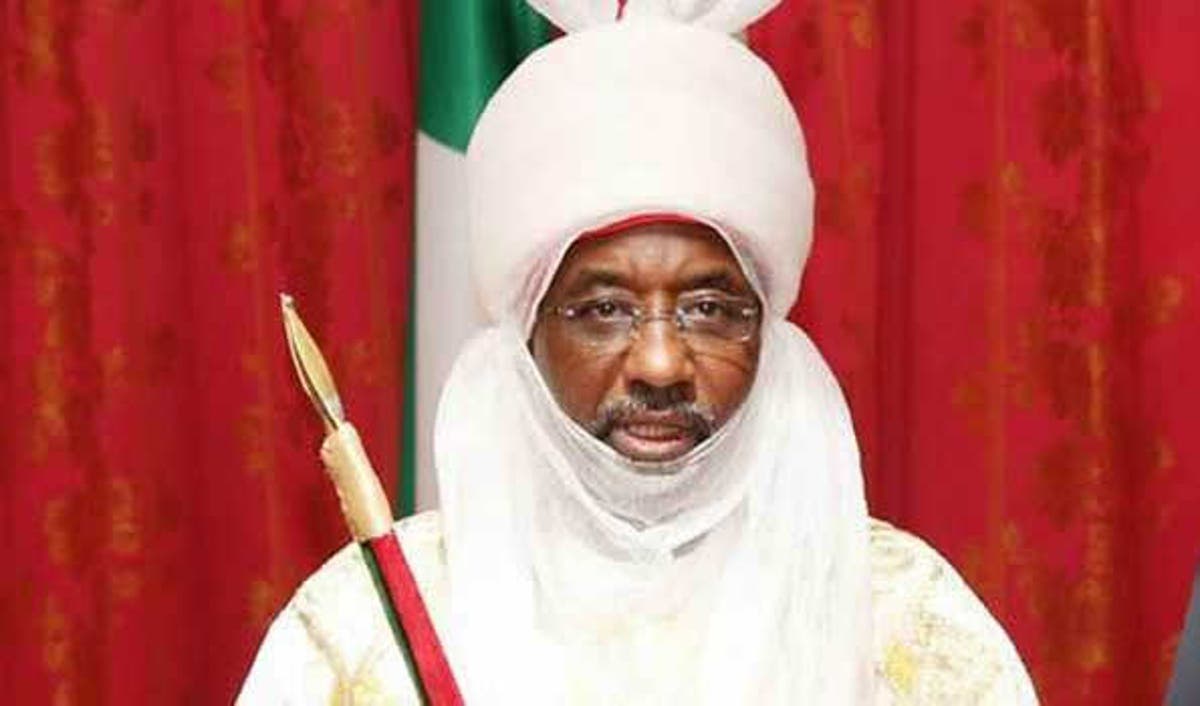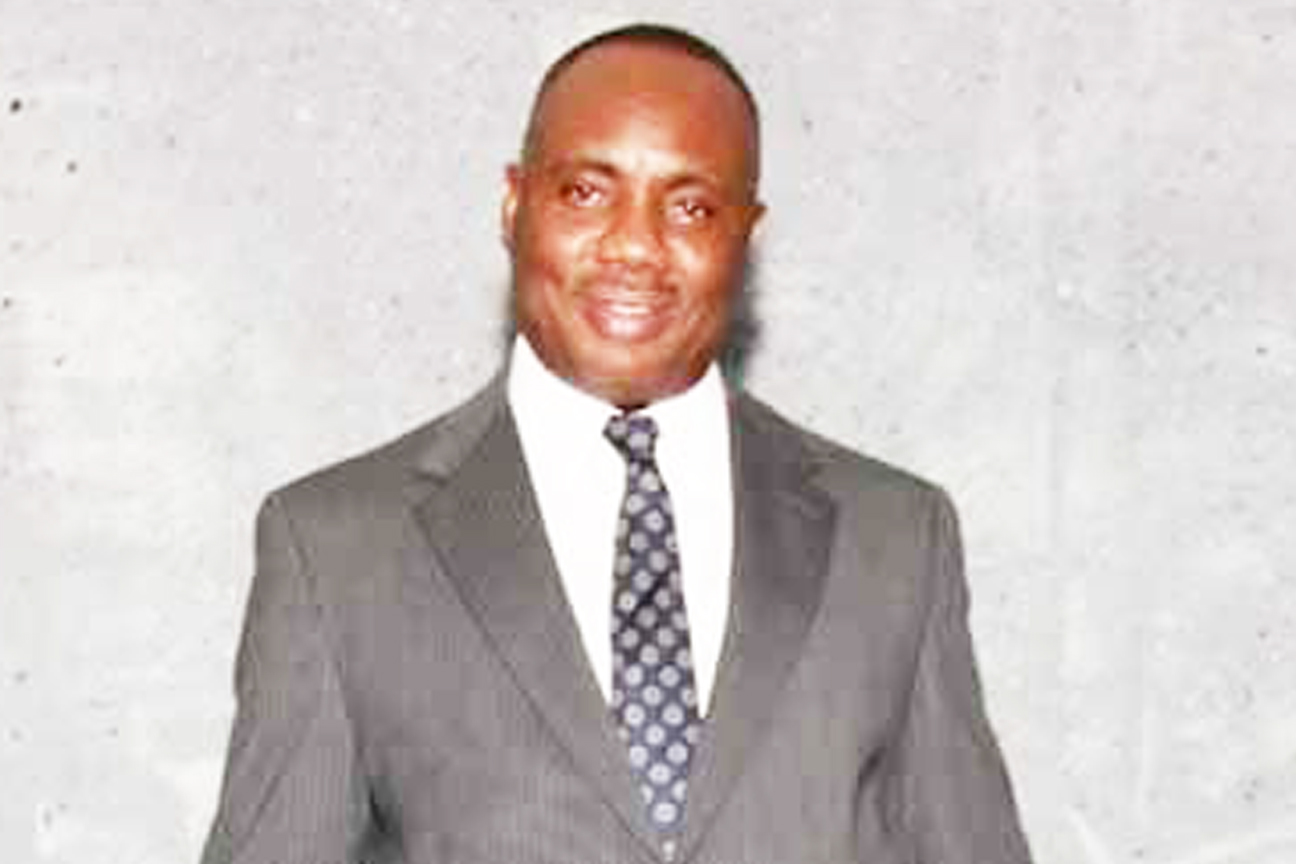Lifestyle
In Nigeria, it’s 40 years of waste, zero progress — Sanusi

- When Air Power Becomes a Christmas Performance: The Illusion of Success in Trump’s Nigerian Strike - December 28, 2025
- Burna Boy, the Spotlight, and the Cost of Arrogance - November 27, 2025
- Billionaires Conclave USA Brings Career Wealth Masterclass to Houston with Dr. Olumide Emmanuel - July 12, 2025
Lifestyle
Burbank Marriage Unravels After Woman Allegedly Used Tracking Devices to Monitor Husband

Burbank, Calif. — What began as a seemingly happy two-year marriage ended in confrontation and police involvement after a Burbank woman allegedly used multiple electronic tracking devices to monitor her husband’s movements, authorities and sources familiar with the situation said.

According to information obtained by this outlet, the marriage between Amos and Yolanda deteriorated after Yolanda allegedly placed Apple AirTags, Tile trackers, and a GPS tracking device on Amos’ vehicle and personal belongings without his knowledge. The devices reportedly allowed her to monitor his location in real time and reconstruct his daily movements across the city.

Friends of the couple said the marriage appeared stable during its early years, with the pair often seen together at community events and social gatherings. However, tensions reportedly escalated when Yolanda began confronting Amos about his whereabouts, referencing locations and timelines he had not shared with her.
The situation reached a breaking point when Yolanda allegedly tracked Amos to an apartment complex in Burbank, where she believed he had gone without informing her. Sources say she arrived at the location shortly after he did, leading to a heated confrontation in the parking area of the building. Neighbors, alarmed by raised voices, contacted local authorities.
Burbank police responded to the scene and separated the parties. While no arrests were immediately announced, the incident marked the effective end of the couple’s marriage, according to individuals close to Amos.
Legal experts note that the unauthorized use of tracking devices may raise serious privacy and stalking concerns under California law, depending on intent and consent. Law enforcement officials have not publicly disclosed whether an investigation remains ongoing.
The case underscores growing concerns about the misuse of consumer tracking technology, originally designed to help locate lost items, but increasingly implicated in domestic disputes and surveillance-related allegations.
As of publication, neither Amos nor Yolanda had publicly commented on the incident.
- When Air Power Becomes a Christmas Performance: The Illusion of Success in Trump’s Nigerian Strike - December 28, 2025
- Burna Boy, the Spotlight, and the Cost of Arrogance - November 27, 2025
- Billionaires Conclave USA Brings Career Wealth Masterclass to Houston with Dr. Olumide Emmanuel - July 12, 2025
Lifestyle
Kaduna Governor Commissions Nigeria’s First 100-Building Prefabricated Housing Estate

Kaduna, Nigeria – November 6, 2025 — In a major milestone for Nigeria’s housing sector, the Governor of Kaduna State has commissioned a 100-unit mass housing estate developed by Family Homes and executed by Karmod Nigeria, marking the first-ever large-scale prefabricated housing project in the country.
Completed in under six months, the innovative project demonstrates the power of modern prefabricated construction to deliver high-quality, affordable homes at record speed — a sharp contrast to traditional building methods that often take years.
Each of the 100 units in the estate is designed for a lifespan exceeding 50 years with routine maintenance. The development features tarred access roads, efficient drainage systems, clean water supply, and steady electricity, ensuring a modern and comfortable living environment for residents.
According to Family Homes, the project represents a new era in Nigeria’s mass housing delivery, proving that cutting-edge technology can accelerate the provision of sustainable and cost-effective homes for Nigerians.
“With prefabricated technology, we can drastically reduce construction time while maintaining top-quality standards,” said a spokesperson for Family Homes. “This project is a clear demonstration of what’s possible when innovation meets commitment to solving Nigeria’s housing deficit.”
Reinforcing this commitment, Governor Uba Sani of Kaduna State emphasized the alignment between the initiative and the state’s broader vision for affordable housing.
“The Family Homes Funds Social Housing Project aligns with our administration’s commitment to the provision of affordable houses for Kaduna State citizens. Access to safe, affordable and secure housing is the foundation of human dignity. We have been partnering with local and international investors to frontally address our housing deficit,” he said.
Also speaking at the event, Mr. Ademola Adebise, Chairman of Family Homes Funds Limited, noted that the project embodies inclusivity and social progress.
“The Social Housing Project also reflects our shared vision of inclusive growth, where affordable housing becomes a foundation for economic participation and improved quality of life.”
Karmod Nigeria, the technical partner behind the project, utilized its extensive expertise in prefabricated technology to localize the process, employing local artisans and materials to enhance community participation and job creation.
Industry experts have described the Kaduna project as a blueprint for future housing initiatives nationwide, capable of addressing the country’s housing shortfall more efficiently and sustainably.
With this pioneering development, Kaduna State takes a leading role in introducing modern housing technologies that promise to reshape Nigeria’s urban landscape.
- When Air Power Becomes a Christmas Performance: The Illusion of Success in Trump’s Nigerian Strike - December 28, 2025
- Burna Boy, the Spotlight, and the Cost of Arrogance - November 27, 2025
- Billionaires Conclave USA Brings Career Wealth Masterclass to Houston with Dr. Olumide Emmanuel - July 12, 2025
Houston
Houston and Owerri Community Mourn the Passing of Beloved Icon, Lawrence Mike Obinna Anozie

Houston was thrown into mourning on September 19, 2025, following the sudden passing of businessman and community advocate Lawrence Mike Obinna Anozie, who peacefully joined his ancestors. Immediate family member in Houston, Nick Anozie, confirmed his untimely death and expressed gratitude for the outpouring of love and condolences from both the Houston and Owerri communities.
Lawrence was born to Chief Alexander and Lolo Ether Anozie of Owerri in Imo State, Nigeria, and will be dearly remembered by family members, friends, and the entire Houston community.
An accomplished accountant, the late Lawrence incorporated and successfully managed three major companies: Universal Insurance Company, LLC, Universal Mortgage LLC, and Universal Financial Services. Through these enterprises, he not only built a thriving business career but also created opportunities for countless individuals to achieve financial stability. His contributions to entrepreneurship and community development will remain a lasting legacy.
According to the family, arrangements for his final funeral rites are in progress and will be announced in due course.
Lawrence will forever be remembered as a loving and compassionate man who dedicated much of his life to uplifting others. He helped countless young Nigerians and African Americans overcome economic challenges by providing mentorship, financial guidance, and career opportunities. His generosity touched the lives of many who otherwise might not have found their footing. A devout Catholic, he was unwavering in his faith and never missed Mass, drawing strength and inspiration from his church community. To those who knew him, Lawrence was not only a successful businessman but also a pillar of kindness, humility, and faith whose legacy of service and compassion will continue to inspire generations.
For more information, please contact Nick Anozie – 832-891-2213
- When Air Power Becomes a Christmas Performance: The Illusion of Success in Trump’s Nigerian Strike - December 28, 2025
- Burna Boy, the Spotlight, and the Cost of Arrogance - November 27, 2025
- Billionaires Conclave USA Brings Career Wealth Masterclass to Houston with Dr. Olumide Emmanuel - July 12, 2025


















